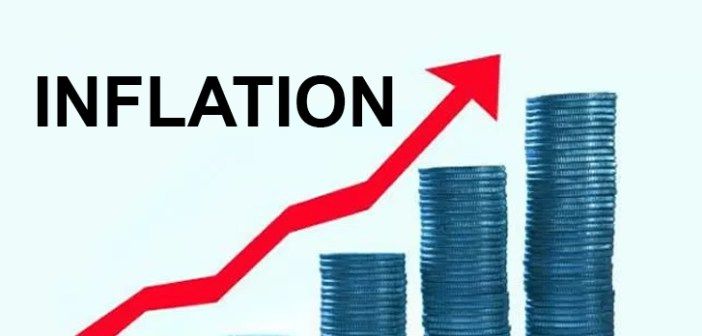Uncertainty around Japan inflation underscores need for nimble monetary policy
Japan’s headline inflation reached a four-decade high in February as the economic recovery continued amid supportive monetary and fiscal policies and a surge in tourism. While lower energy prices reduced inflation in recent months, underlying momentum in core prices, which exclude fresh food and energy, has also strengthened further, reaching a four-decade high of 4.1 percent in April.
Rapid price gains are rarely desirable, but Japan is an exception after bouts of deflation since the late 1980s and early 1990s. Now, there are three reasons for hope that the world’s third-largest economy is at a turning point and that the Bank of Japan may finally be able to sustain inflation around its 2 percent target:
- While inflation was initially triggered by the global energy and supply-chain crisis rather than strong underlying demand, there are increasing signs that price pressures are proving to be broader and more durable.
- The annual ‘shunto’ negotiations between labor unions and major companies signal agreement on larger-than-expected wage gains that better keep up with rising prices.
- Business surveys show a sustained increase in inflation expectations, which is likely to influence corporate price-setting.
These factors, however, are accompanied by important caveats, which would make it difficult to sustain this inflation. The expected wage boost may not be enough as small and medium-sized enterprises that employ more than 70 percent of workers are less profitable and may not be able to afford sufficiently large pay increases.
In addition, a weakening of the global economy could strengthen the yen, making exports less competitive and potentially returning Japan to low inflation or deflation. And household surveys indicate inflation expectations remain well below 2 percent. In our latest staff report, we project inflation to remain above the 2 percent target until the end of next year, driven by the continued surge in tourism and delayed effects of yen depreciation.
Policy challenge
The key challenge facing the Bank of Japan (BOJ) is how to durably achieve its inflation target without significantly overshooting while safeguarding financial stability. As the only major central bank with a negative interest rate, set at minus 0.1 percent, monetary policy remains ultra-accommodative with rising inflation.
Under its yield curve control policy, the central bank has pledged to buy as many Japanese government bonds as needed to keep 10-year yields within its target range. This policy was largely successful since its 2016 introduction because investors perceived it to be a credible yield cap, reducing the need to buy as much to maintain it.
That changed since the Federal Reserve and other central banks started raising interest rates last year, creating a yield gap that put heavy downward pressure on the yen. Investor speculation that Japan’s easing cycle would end forced the central bank to buy trillions of yen in bonds to defend the ceiling on yields, in turn destabilizing the market.
The BOJ now owns more than 80 percent of outstanding 10-year government bonds. Given these rising costs associated with capping long-term rates, the central bank should allow greater flexibility in longer-term yields and allow market forces to play out. At the same time, with inflation risk in both directions, policymakers should maintain their accommodative stance by keeping the short-term policy rate unchanged until there’s more evidence that they can durably meet their 2 percent inflation target.
Such added flexibility, makes monetary policy nimbler, reduces undesirable side-effects, and lessens the risks of derailing the economic recovery or undermining price stability.
There are several ways that the BOJ could be more flexible. It could widen the target band around the 10-year rate enough for market forces to play a leading role, minimizing the need for its continued intervention in the bond market. It could keep short-term yields low—which are found to matter more for real economic activity—by capping a shorter-term rate instead, such as the 5-year rate. And it could shift from a yield target to a quantity-based purchasing objective to avoid the cost of defending a particular yield level.
Policymakers must carefully assess the advantages and disadvantages of each approach as well as potential domestic financial stability implications, as we outline in our latest staff report.
Global spillovers
Japan has been the world’s largest net creditor for more than three decades, with external assets of $3.2 trillion, as years of low interest rates drove foreign investment to achieve higher yields. That means rising government bond yields could lure investors back to domestic assets and help to attract more investment from outside the country.
That could hurt the valuation of overseas assets and put upward pressure on global yields by fueling foreign sales by Japanese or purchases of Japanese assets by foreigners, as seen in December when the BOJ surprised markets by increasing its target band around 10-year yields. Such spillover effects would likely be larger in countries where Japanese investors own a large share of local debt—this includes several euro area countries, Australia, and the United States. Clear communication of any changes to Japan’s monetary policy stance will be critical to mitigate potential unintended consequences and heightened market volatility.
Ultimately, monetary easing will need to be supported by other policies for Japan to finally achieve its 2 percent inflation target sustainably. This includes withdrawal of pandemic-related fiscal support, with any new measures limited and targeted to vulnerable households only, to avoid overheating the economy.
It will also be helpful to boost personal income and purchasing power, such as by making it easier for workers to switch jobs and for women and seniors to join the workforce. Overcoming such structural barriers to wage growth will make it possible for the country to enjoy the benefits of a virtuous cycle of income and growth.











